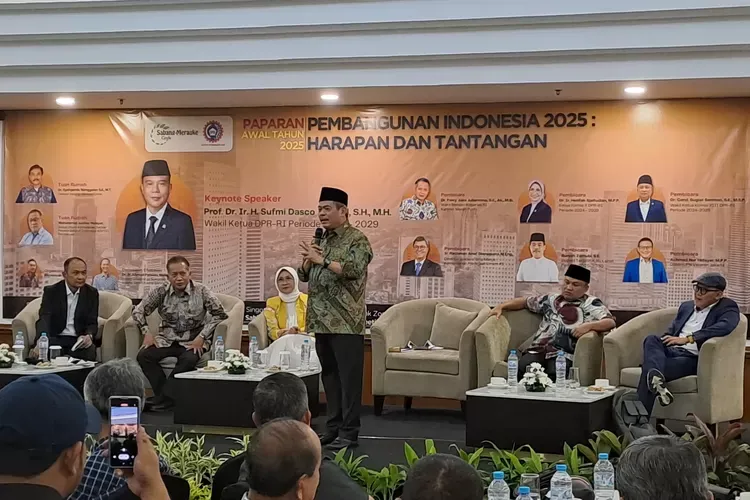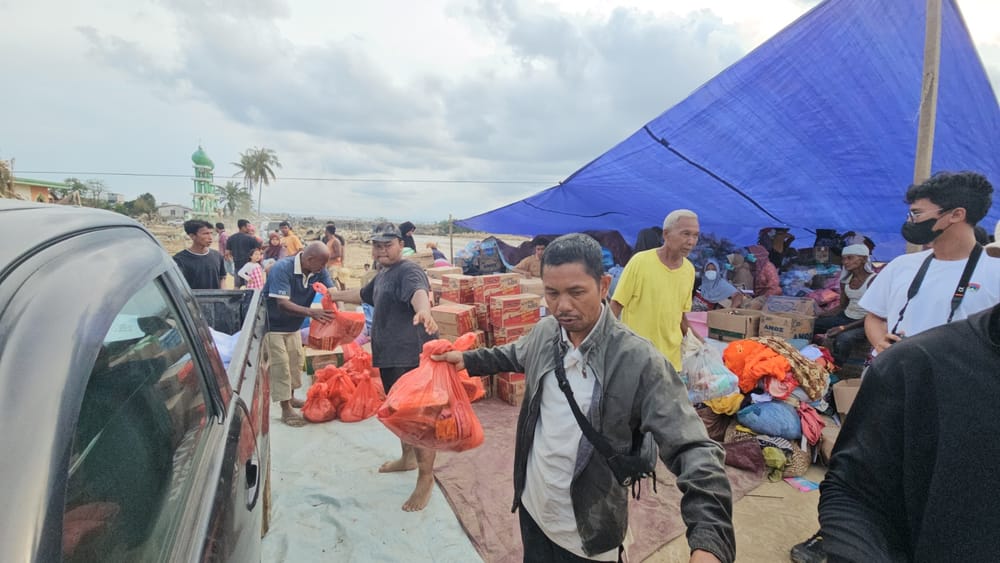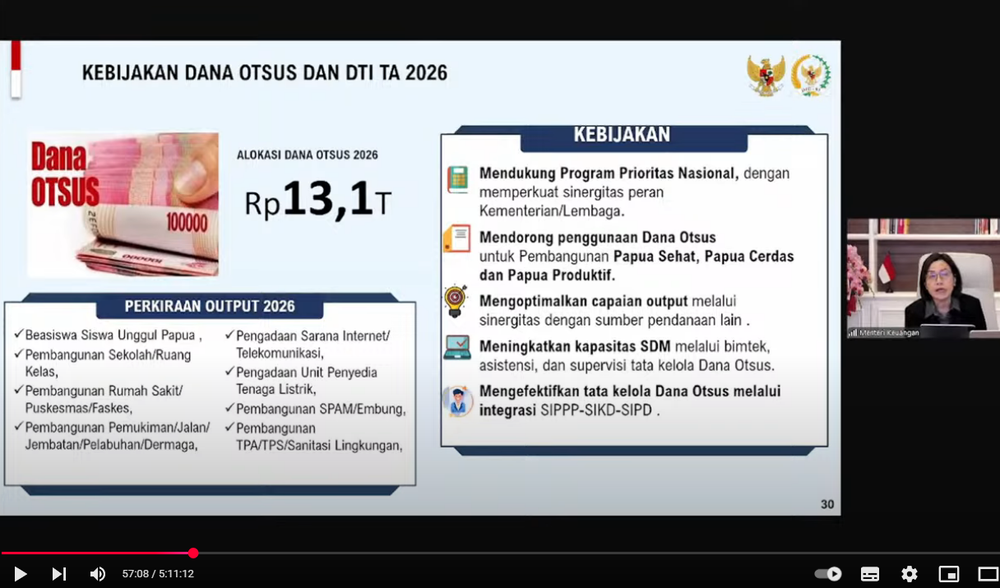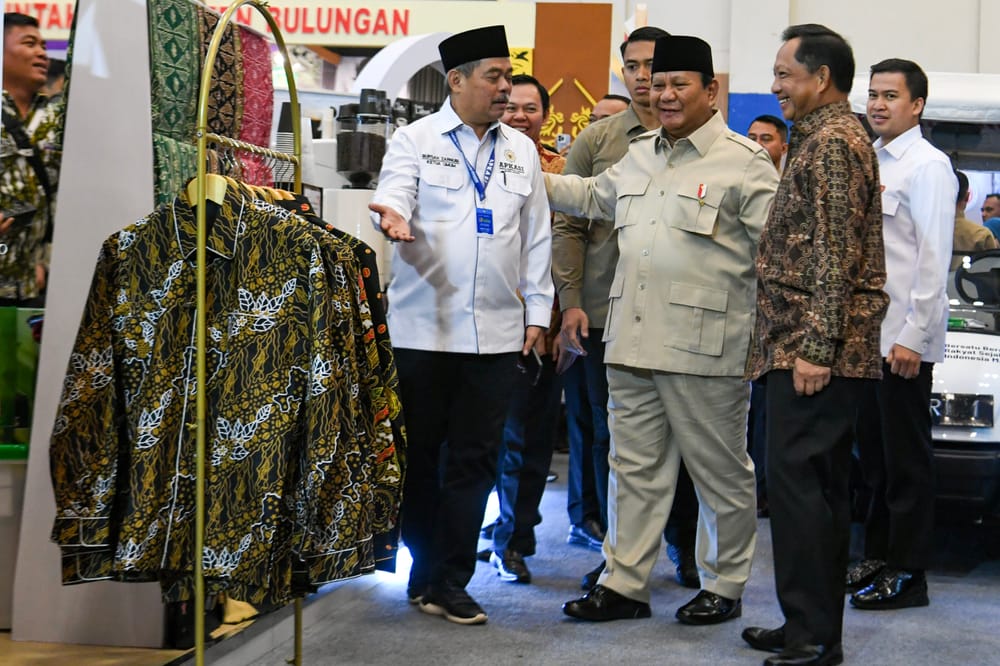This kind of exchange of ideas rarely happens. The Inauguration of the Board of Executives of the Association of Regency Governments Throughout Indonesia (Apkasi) for the 2025-2030 Period, at the Grand Sahid Jaya Hotel, Central Jakarta, Thursday, July 17, 2025, became an interesting dialogue forum between the General Chairperson of Apkasi, Bursah Sarnubi, and Minister of Home Affairs Tito Karnavian.
When delivering his speech after the inauguration, Bursah highlighted the authority of regional heads which sometimes clashes with central regulations. "There are requirements such as Pertek (technical regulations) that must be requested from the central government, but that can hinder decisions in the regions," said Bursah.
It was Minister Tito's turn to be asked to give a speech. The former National Police Chief also emphasized that regional heads, especially regents, should not seek profit from managing money in the regions. "Law enforcers already know the modes of corruption in the regions," said Tito.
Therefore, Tito encouraged regional heads to seek legal sources of funding that could later be used for the welfare of the regional heads themselves. "We need to formulate together, we need to create an event like a symposium, I am ready to have a dialogue," he said.
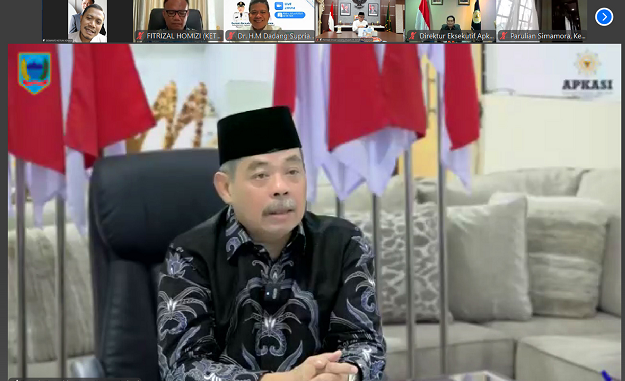
Back to the Village Economy
Many issues were discussed, even while throwing statements on stage that day. Although resolutions to many problems could not be agreed upon that day, this was a positive signal of dialogue that needs to be built by regional governments with the central government.
"We are ready to be given the authority to be able to make the central government's programs a success within the framework of the Unitary State of the Republic of Indonesia," said Bursah.
As an activist, Bursah has a long track record in government. Both when he was in the legislature and now as an executive. And now, after becoming the regent in Lahat, South Sumatra, Bursah has a noble mission to strengthen rural communities, both economically and socially.
"Since I became an activist, the imbalance in villages has been due to the government's failure to formulate national policies," he said.
For Bursah, the growth of rural areas is like the heart of the national economy which must always be maintained. However, on the other hand, national policies are considered not fully supportive of improving rural governance.
So, when he was inaugurated as the number one person in Lahat in February 2025, Bursah immediately took action to develop villages. First, he built a water circulation system for rice fields through integrated irrigation.
The first village to have its water system built was Pagar Jati Village, in Kikim Selatan District. The irrigation project irrigates 1,200–1,300 hectares of rice fields, and is designed to last for 50-100 years. All built from the regional budget of around IDR 130 billion.
Development in the regions will be quite difficult if it is too dependent on policies and budgets from the central government.
For Bursah, development in the regions will be quite difficult if it is too dependent on central government policies and budgets. Meanwhile, irrigation development urgently needs to be carried out to build a potential rice field area ecosystem.
Moreover, the Prabowo Subianto Administration now wants to target food self-sufficiency. "For rice self-sufficiency, an important thing is also to build irrigation," said the Chairperson of the Association of Regency Governments Throughout Indonesia (Apkasi).
Marginalizing the Mining Sector
Bursah chose to improve agricultural areas not without calculation. Speaking of the potential of rice fields in Lahat, 2024 BPS data reveals that agriculture is the second largest contributor to GRDP after mining and quarrying.
He also realizes the potential of plantations through a number of commodities ranging from coffee, cocoa, palm oil to rubber.
Although the mining and quarrying sector plays an important role in Lahat's economy, Bursah has believed from the start that mining such as coal has less benefit. So now the village is being built with infrastructure, in order to become the backbone of the economy.
Rice field irrigation to maximize the production process will later be expanded at four points spread across four sub-districts.
Most recently, Bursah is also working on Lahat's coffee commodity so that it can become global. He understands very well that Lahat's original coffee is high in quantity and tastes good. Like the fame of Gayo coffee typical of Aceh, Lahat coffee will go-public, and is even projected to go-international.
The utilization of this commodity, if referring to BPS data, is also quite promising as the production volume stabilizes at 20 thousand tons per year.
Bursah is also accelerating the fisheries potential. Currently, it is being tested to build a fisheries business ecosystem. At least 500,000 fish seeds are allocated in a number of fish ponds located in community economic centers. Quoting BPS data again, the fisheries sector is also among the top sectors building Lahat's economy.
UMKM Upgrades
Still talking about building villages, Bursah is also targeting UMKM players to improve their economic class. He still remembers when he helped woven bag craftsmen in increasing their production capacity.
One time when Bursah met the craftsmen, they complained about the difficulty of increasing the amount of production because the machines were obsolete. Submissions to the previous government had been made, but to no avail. Until finally, Bursah bought a new production machine.
Bursah warned that umkm actors have not easily gained access to capital. Not to mention empowerment, which is also rarely obtained. He joked that umkm do not have difficulty growing because there are no progressive policies, but have difficulty progressing because the choice of micro diction makes business development just so-so.
"I don't want to call them UMKM, but economic business units. The UMKM in my time, I will nurture, not kill," said Bursah.
At the beginning of Prabowo's administration, the direction of building villages had actually begun to be directed. The food self-sufficiency policy became the trigger for the involvement of villages that have natural resources compared to urban areas.
However, Bursah has not seen the harmonization of relations between the central and regional governments. In fact, regional heads should be held to make central government policies successful. "Yes, that's why Mr. Prabowo needs people like us, Apkasi. Because (we) can support the central government's program," he said.
Bursah has not seen the harmonization of relations between the central and regional governments. In fact, regional heads should be held to make central government policies successful.
For Bursah, rebuilding villages is not just a matter of increasing local revenue. But more than that, restoring the village as a center of civilization.
"Because we rely too much on manufacturing. So the village is left behind. Urbanization occurs because villagers are looking for work. A strong village must have economic growth and develop its workforce," he said.

